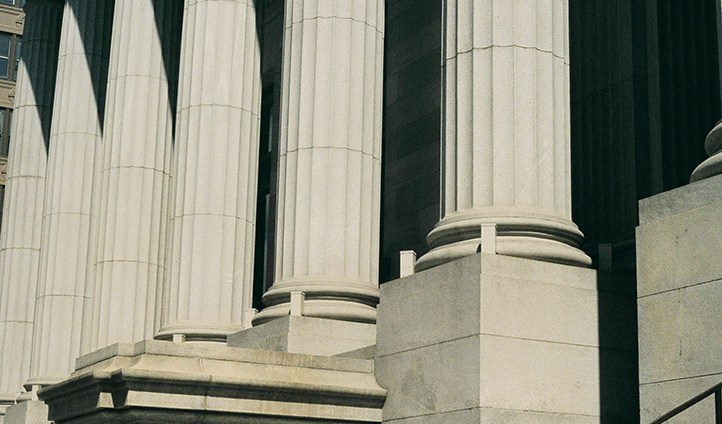Confirmation of Justice Elena Kagan

In 2010, President Barak Obama nominated Elena Kagan to the U.S. Supreme Court to replace Justice John Paul Stevens. Her nomination was confirmed by the U.S. Senate by a 63–37 vote. Once sworn in, Kagan became the 112th justice and the fourth woman to serve on the country’s highest court.
Kagan was rumored to be in contention for replacing David Souter in 2009, but that seat went to Sonia Sotomayor. Justice Kagan was serving as Solicitor General of the United States when she was nominated. She was the first Justice to be appointed to the court without previous experience as a judge since Justice William Rehnquist.
Kagan enjoyed widespread support from members of the Democratic party, which controlled the Senate. However, many Republicans expressed concern about her nomination, particularly her lack of judicial experience. Critics also questioned Kagan’s admiration for liberal Supreme Court Justice Thurgood Marshall, for whom she served as a clerk. The National Rifle Association (NRA) also aggressively opposed Kagan’s nomination. It warned lawmakers that it planned to score the vote on her confirmation, which would result in lower ratings for Senators that voted in Kagan’s favor.
During her confirmation hearings before the Senate Judiciary Committee, Kagan was questioned about a range of issues, including abortion, gun rights, the Commerce Clause, and military recruiting on campus while she was the dean of Harvard Law School. In her testimony, Kagan also drew a clear line between her work for the Clinton Administration and her potential seat on the Court. “As a judge, you are on nobody’s team,” she said. “I would put on that robe and be independent and not favor any political party.”
Kagan also advocated judicial restraint. “One of the benefits of narrow decisions is that they enable consensus to a greater degree,” Kagan said. “Consensus is in general a very good thing for the country and for the judicial process.”
At the end of her confirmation hearing, Kagan told lawmakers, “I hope you found it informative. I found it somewhat wearying but actually a great moment in my life.” The Senate Judiciary Committee ultimately voted 13-6 to recommend Kagan, with Senator Lindsey Graham the only Republican crossing party lines to support the nomination.
With the vote moving to the full Senate, Republicans held enough seats to launch a successful filibuster. However, Kagan was able to garner the support of five Republicans—Richard Lugar, Lindsey Graham, Judd Gregg, Olympia Snowe, and Susan Collins. Senate Minority Whip Jon Kyl also did not support using the tactic, stating: “The filibuster should be relegated to extreme circumstances, and I don’t think Elena Kagan represents that.”
Justice Kagan’s confirmation was largely uncontroversial. Because the Democrats held the Senate and Kagan was nominated to replace a justice considered to be even more –left-leaning, Republicans did not feel compelled to unnecessarily waste their political capital. Justice Elena Kagan was sworn in on August 7, 2010. She is the youngest sitting member of the Court.
Previous Articles
SCOTUS Wraps Up Oral Arguments for the Term
by DONALD SCARINCI on May 17, 2022
The U.S. Supreme Court has concluded its oral arguments for the October 2021 Term. The justices hea...
SCOTUS Rules Censure of Elected Board Member Didn’t Violate First Amendment
by DONALD SCARINCI on May 10, 2022
In Houston Community College System v. Wilson, 595 U.S. ____ (2022), the U.S. Supreme Court held th...
Supreme Court Breach Is Not the First Involving Roe v. Wade
by DONALD SCARINCI on
The recent disclosure of Justice Samuel Alito’s decision purporting to overturn Roe v. Wade is ar...
The Amendments
-
Amendment1
- Establishment ClauseFree Exercise Clause
- Freedom of Speech
- Freedoms of Press
- Freedom of Assembly, and Petitition
-
Amendment2
- The Right to Bear Arms
-
Amendment4
- Unreasonable Searches and Seizures
-
Amendment5
- Due Process
- Eminent Domain
- Rights of Criminal Defendants
Preamble to the Bill of Rights
Congress of the United States begun and held at the City of New-York, on Wednesday the fourth of March, one thousand seven hundred and eighty nine.
THE Conventions of a number of the States, having at the time of their adopting the Constitution, expressed a desire, in order to prevent misconstruction or abuse of its powers, that further declaratory and restrictive clauses should be added: And as extending the ground of public confidence in the Government, will best ensure the beneficent ends of its institution.




